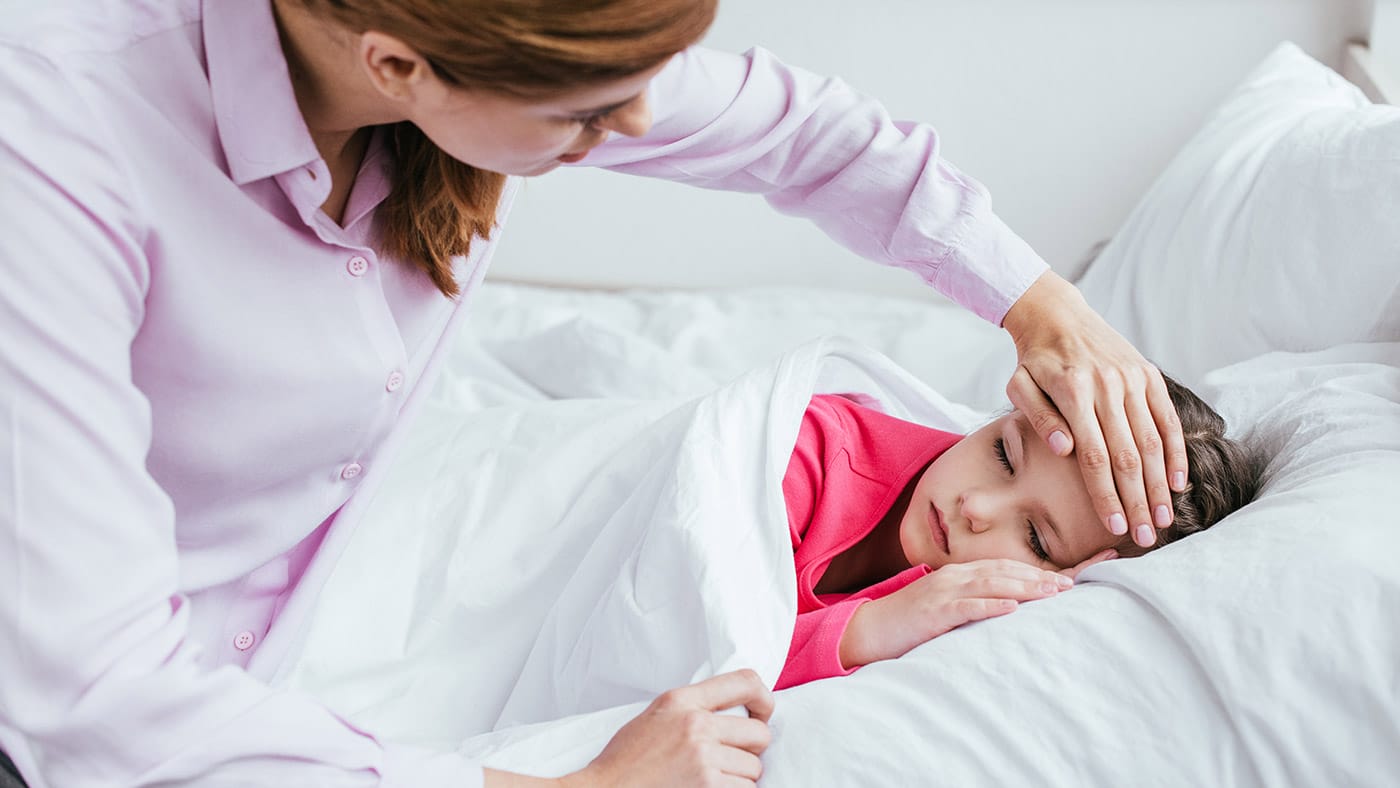Health
Fever in Children: What to Do and What Not to Do

Fever in children is a common concern for many parents and caregivers. It can be unsettling to see your child feeling unwell, especially when the temperature rises. While fever is often a sign that the body is fighting an infection, it’s important to know how to manage it and when to seek medical help. This article will guide you on what to do and what not to do when your child has a fever.
Understanding Children Fever
Fever is typically defined as a body temperature above 38°C (100.4°F). In children, fever is often caused by infections, such as colds, flu, ear infections, or even vaccinations. While fever is a natural response of the immune system to fight off infections, it can be a cause of concern for parents. The key to managing children fever is knowing when it’s a sign of something more serious and when it can be safely monitored at home.

What to Do When Your Child Has a Fever
Monitor the Temperature Regularly
It’s important to keep track of your child’s temperature to assess whether it is rising or falling. Use a thermometer to measure their temperature every few hours. If the fever goes above 39°C (102.2°F), you should take steps to lower it, but remember that the goal is comfort, not to bring the fever down to normal immediately.
Keep Your Child Hydrated
Fever can cause dehydration, so it’s important to encourage your child to drink fluids. Offer water, clear soups, or electrolyte solutions regularly to help keep their body hydrated. Children with fever may not feel like eating, but small sips of fluids can help maintain hydration.
Dress Them Comfortably
Dress your child in lightweight clothing and keep their room cool. Overdressing or using heavy blankets can cause their temperature to rise further. A cool, comfortable environment will help their body regulate its temperature better.
Administer Fever-Reducing Medication
If your child seems uncomfortable or is having trouble sleeping due to fever, you can administer fever-reducing medication such as paracetamol (acetaminophen) or ibuprofen. Be sure to follow the correct dosage based on your child’s weight and age, and avoid giving aspirin, as it can be dangerous for children, especially those with viral infections.
Offer Rest and Comfort
When your child has a fever, they may feel tired or lethargic. Encourage them to rest and provide comfort through soothing activities like reading a book or watching a calm TV show. Rest helps the body recover and strengthens the immune system.
When to Seek Medical Help
While fever in children is often not serious, there are instances when you should seek medical advice. Pay attention to the following signs:
- If the fever lasts longer than 3 days
If the fever persists for more than 72 hours despite at-home treatments, it may be a sign of a more serious infection that requires medical intervention. - If your child is younger than 3 months
Any fever in infants younger than 3 months should be treated as a medical emergency. Immediate consultation with a doctor is necessary to rule out serious infections. - If your child is extremely irritable, lethargic, or inconsolable
A fever accompanied by persistent irritability, drowsiness, or an inability to stay awake should prompt a call to a healthcare provider. - If there are signs of dehydration
Signs of dehydration include dry mouth, sunken eyes, or fewer wet diapers in infants. If you notice these symptoms, seek medical attention immediately. - If there is a rash, difficulty breathing, or convulsions
If your child develops a rash, has trouble breathing, or experiences seizures along with a fever, these could be signs of a serious condition that requires emergency medical care.
What Not to Do When Your Child Has a Fever
- Don’t Overload with Medication: While it can be tempting to constantly medicate your child to lower their fever, it’s important not to overdo it. Follow the recommended dosage instructions, and do not administer fever-reducing medication more frequently than advised. Overmedicating can lead to side effects such as liver damage or kidney stress.
- Avoid Giving Ice Baths or Cold Compresses: Although it may seem like a good idea to bring down the fever quickly, using ice baths or very cold compresses can shock your child’s system and may actually cause their body temperature to rise. Lukewarm baths are more effective if you want to help cool them down gently.
- Don’t Force Food if They’re Not Hungry: When children have a fever, they may lose their appetite. Don’t force them to eat. Instead, focus on hydration and offer light, easy-to-digest foods like soup, fruit, or crackers if they feel like eating.
- Don’t Ignore Changes in Behavior: If your child’s behavior changes significantly, such as becoming unusually sleepy, confused, or having trouble waking up, this is a red flag. Always err on the side of caution and contact a healthcare provider if you notice such changes, as they may indicate a more serious illness.
- Don’t Delay Medical Attention: If you’re unsure whether your child’s fever is a sign of something serious, it’s always better to seek professional advice. Delaying medical attention can lead to worsened conditions, especially in young children whose immune systems are still developing.
Conclusion
Fever in children is common, and while it’s often not a cause for alarm, knowing how to handle it properly is crucial for their comfort and well-being. By monitoring the fever, ensuring hydration, providing comfort, and knowing when to seek medical help, you can manage most cases of children fever effectively. However, always remember to stay vigilant and consult a healthcare professional if you have concerns about your child’s health.



